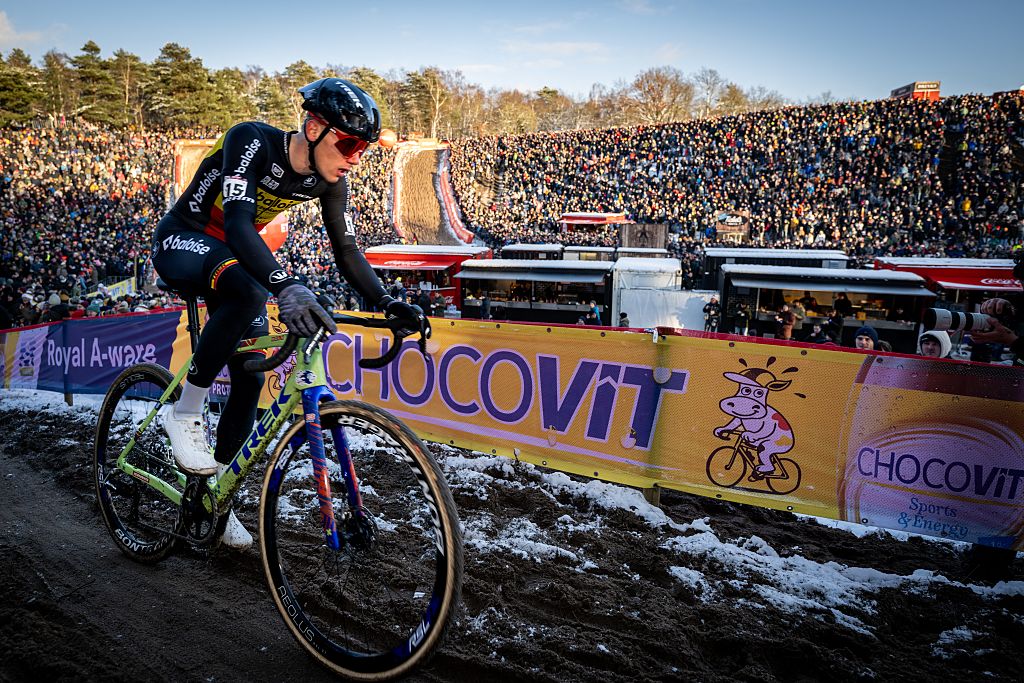Remembering Kathy Watt's 1992 Olympic Gold Medal
Historic road race and individual pursuit success for Australian
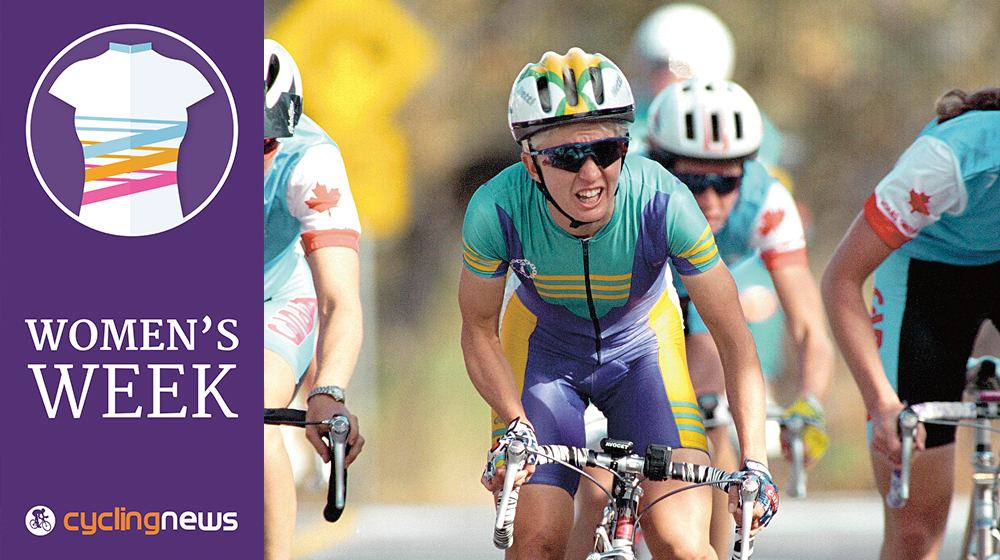
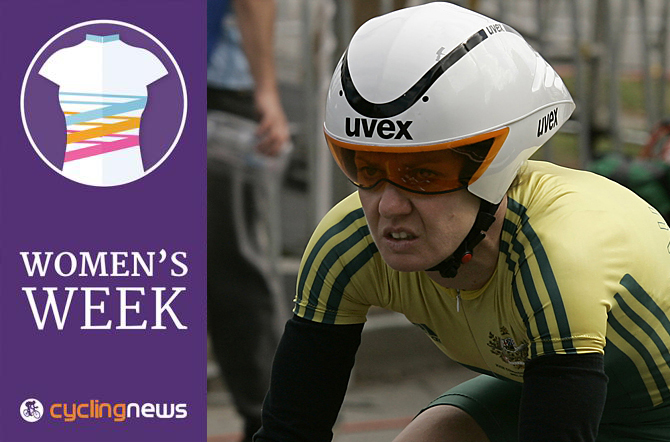
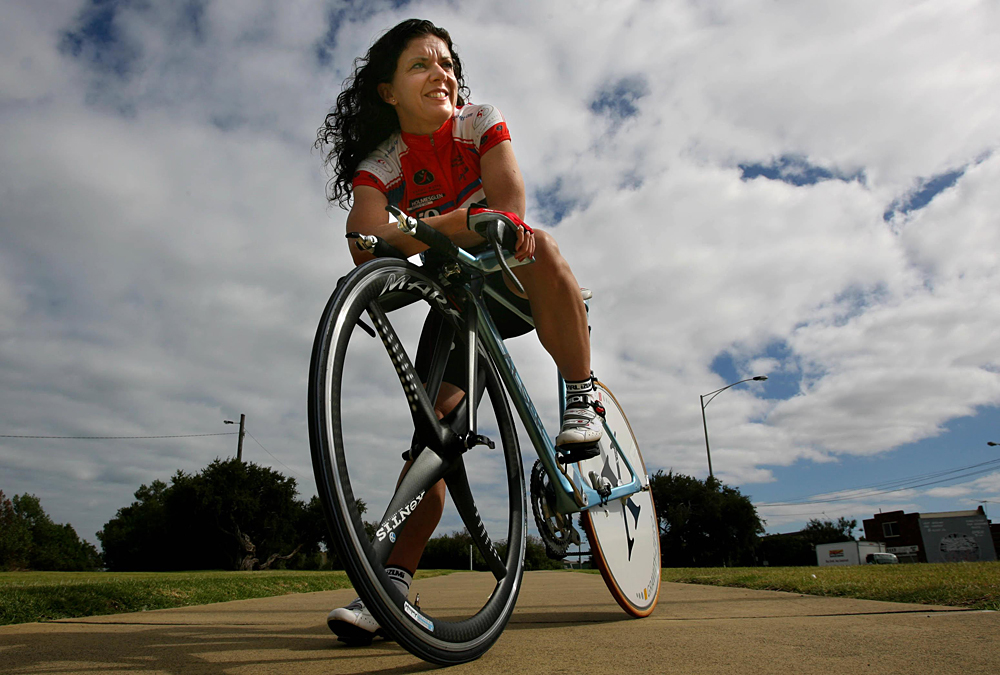
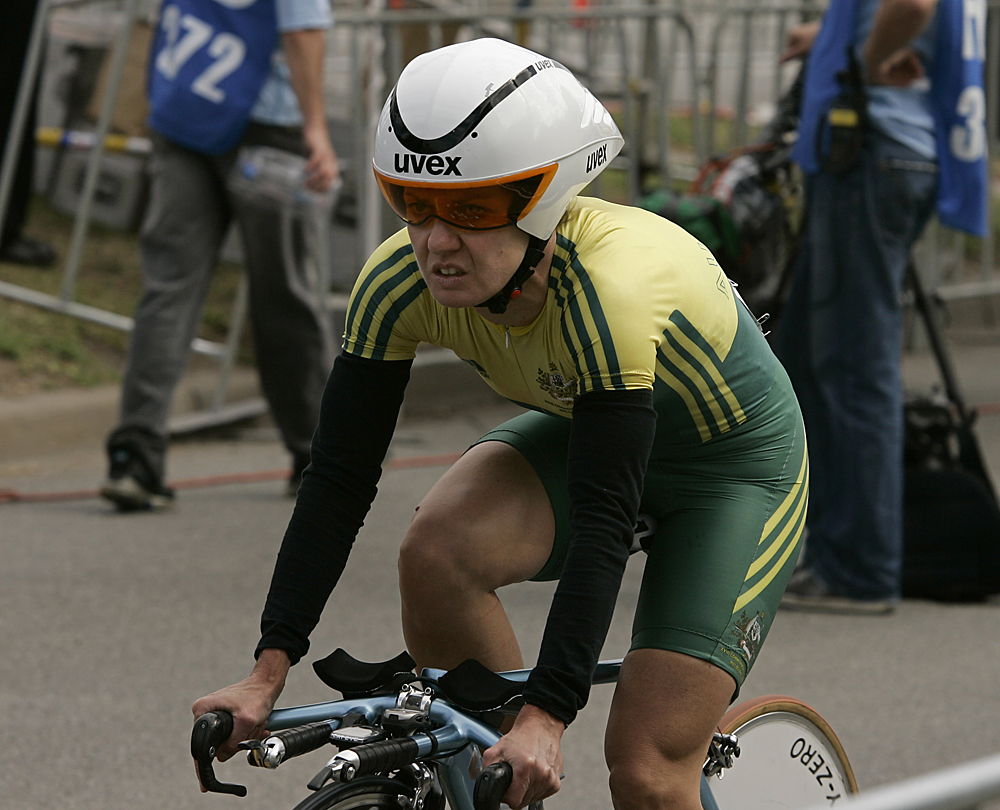
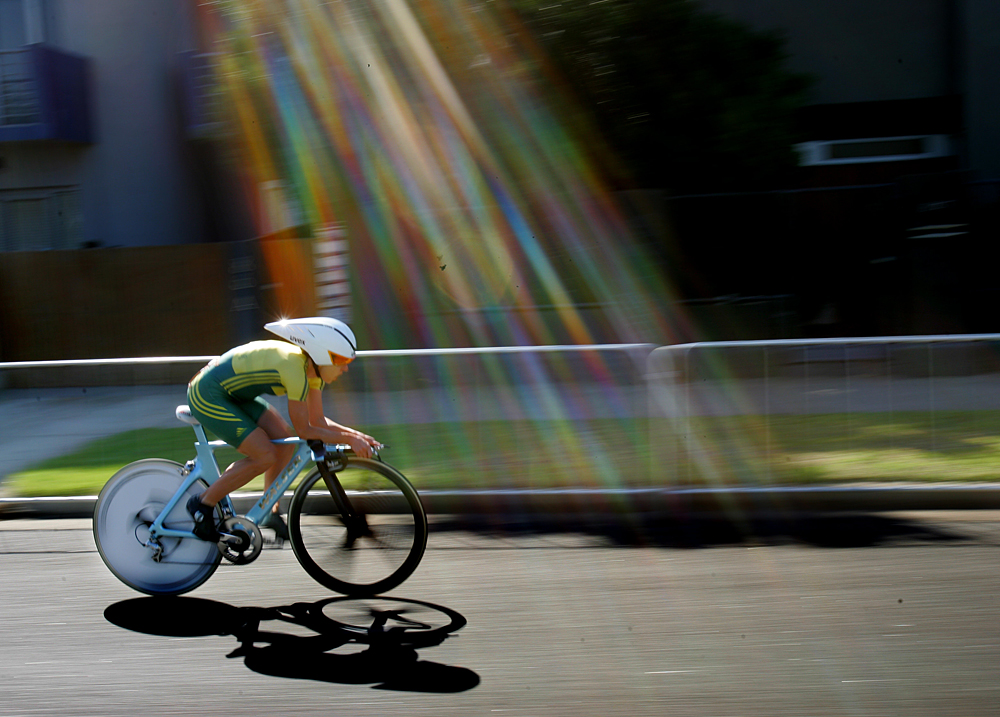
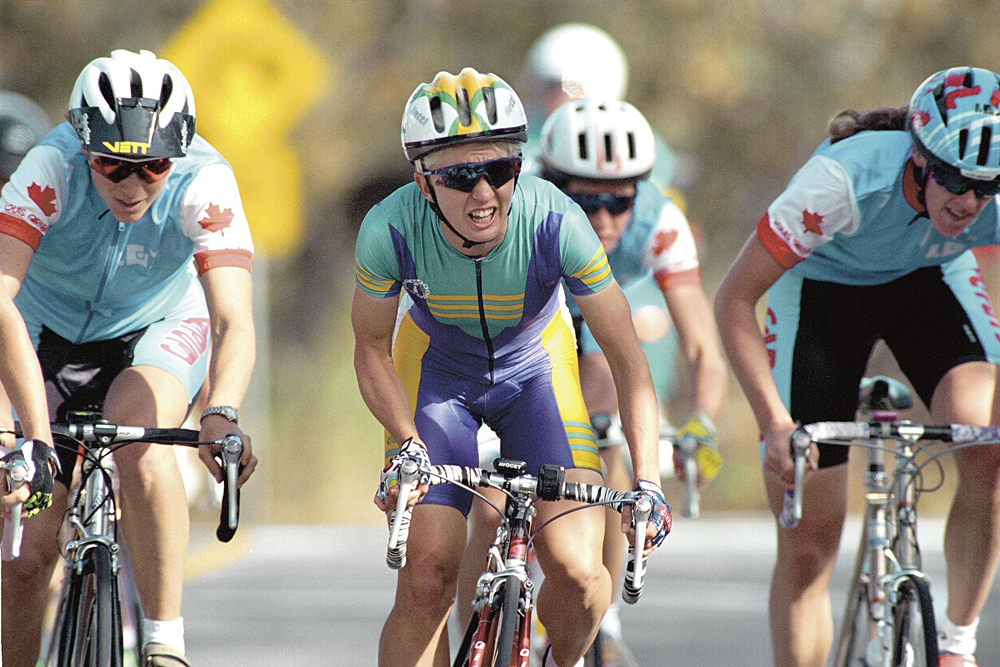
Kathy Watt's name is a recurring theme in the annals of Australian cycling history but it's her 1992 Barcelona road race gold medal that is arguably the standout achievement of her illustrious career. The gold medal was Australia's first in an Olympic road race and as the nation's first at the Spanish games, Watt's name resonates beyond the cycling world down under with a place in its sporting memory.
It was almost a magic gold medal double for Watt in Barcelona as the then 27-year-old followed up her upset success on the road with silver in the 3,000m pursuit despite only training for the road in the months beforehand.
With the Rio Olympic Games starting in just under 50 days and in the middle our of Women's Week, Cyclingnews looks back at Watt historic gold medal success.
Watt's preparation for the Games was less than ideal in 1992 with national coach Charlie Walsh 'banning' her from training on the track. However, Walsh's insistence that Watt forget about being a tourist during the 1991 Barcelona test event provided her with crucial information on how to ride the course and where to make her move.
"The year before I went to the pre-Olympics after the Tour de France and finished fifth in the road race which gave me good ideas of the course," Watt told Cyclingnews from her Melbourne bike store. "One girl, a French girl, got away so I could see where people got out of sight and it helped me with my tactics and I knew time gaps and things on the course. I stuffed up the sprint but ended up fourth in the bunch sprint on an uphill finish, which really suited me. I thought I could get a medal either in a sprint or breaking away.
"We went to the track and I finished fifth which put me off so I said I am going sightseeing but the coach told me ‘not you're not. You're going down with pen and paper and seeing what the others do differently,'" she recounted. "I saw that some used different gears and maybe warmed up a little bit harder which I incorporated into what I did at the Olympics a year after."
Watt's Olympic dream started in her childhood as she followed her marathon-winning dad Geoff into running. A junior 3,000 metres national champion, Watt was inspired by the likes of Herb Elliot, John Landy and Derek Clayton as she dreamt of representing Australia on the grandest stage of all. Cycling, though, would be Watt's calling, with an achilles injury ending her running career at 23.
The latest race content, interviews, features, reviews and expert buying guides, direct to your inbox!
Having only started cycling in the middle of 1986, after trying cross country running, skiing and biathlon, Watt was racing the Tour de France Féminine by 1988, finishing seventh overall. In 1990, she then won the first ever Commonwealth Games women's road race gold medal ahead of Lisa Brambani in Auckland.
Along with her third place overall and points classification victory at the 1990 Giro Rosa, Watt was becoming recognised for her exploits on the road but at the time she was still very much invested in racing on the track. In Barcelona, Watt would be chasing road and track success even if she couldn't get onto a velodrome.
The Road Race
Held in the afternoon sunshine, the women's road race was a 81km circuit in Sant Sadurní d'Anoia with a 58-rider strong peloton. Kathleen Shannon and Jacqui Uttien joined Watt in the Australian team.
France's Jeannie Longo and 1988 gold medalist Monique Knol of the Netherlands were regarded as the pre-race favourites yet Watt was coming off several top performance in the states and was flying under the radar.
"I had arguably the best form because I'd won a few races in America in the lead-up and had a tour what was called the Women's Challenge, which is the biggest race for the women in America and was at altitude," she recounted. "I had the leader’s jersey for several stages, on one stage, a circuit stage, I sprinted for a prime for a camera which I really wanted but I thought I missed it so I was pissed off. I attacked and nobody could catch me on the circuit and Inga Thompson, the best American cyclist at the time, took after me and couldn't catch me either. In the time trial, I smashed Jeanne Longo's time and was in the top-six on every stage and still makings some tactical mistakes in the sprints but I was learning all the time."
After a successful stint of training and racing in North American, Watts headed over to Europe for the Olympic Games and could have seen her medal aspirations quickly disappear. With no access to the Australian mechanic, Watt had taken matters into her own hands to ensure her bike was race ready with a Barcelona bike shop playing its part in her success.
"It's a pity we didn’t have the support as Charlie Walsh was there doing everything he could to stop us which was one of the disappointments," she said. "Heiko Salzwedel was there with the men's road team, but he came to the track and helped me, which was invaluable really. The women's team didn't even have a mechanic and Charlie Walsh wouldn't even let me speak to the men's mechanic so I had a bike with jumping gears but the mechanics weren't working on it and it was the wrong cluster and everything. In the end someone from Australia said ask the interpreter to ring the bike shop, ride your bike down, leave it with the local bike shop, then catch a taxi down to pick it up. In half broken Spanish, or writing down things, I got the right cluster and they fixed my bike and it was the best $180 I spent."
When it came to race day, Watt was prepared for several outcomes as she explained and kept calm to make the race winning move.
"I liked the course, I was very mentally prepared having worked with a sports psychologists Graham Winter and we'd prepared for certain scenarios. Stephen McGlede, I was riding away from the course and village with him, and he suggested some tactics which is actually how it panned out. He said maybe some girls will be away so sneak up the side of the road, start sprinting and go straight past them, which is basically what happened in the race. I had gotten into a break part way through the race but then I saw it wasn't going to stick because they were chasing us really hard so I was only putting in 80%.
"We went back into the bunch and Maria Paola Turcutto and another girl from the Isle of Man [Marie Purvis, ed] got away but coming into the final lap, all the main people had attacked like Longo, van Moorsel, the Russians, the Americans and then we were going up the hill with about ten kilometres to go after the finish which was a long drag," she said. "Everyone was breathing really hard and I thought I was feeling pretty good so I put in the big ring, we had the old lever system so I changed gear and so no one was watching me so I just went. When I caught the two ahead I attacked them.
"I came up behind them and attacked and then with out three kilometres I go I was 45 seconds ahead so I though nobody can catch me now," said Watt who can be heard asking the race motorbike how far behind the chasers are in the race video.
It was a subdued one arm celebration from Watt as she crossed the line, 20 seconds ahead of Longo who celebrated what she believed was the victory. She would get her gold four years later in Atlanta.
Australia's sole road cycling medal until Watt crossed the line in first place came back in 1972 when Clyde Sefton won the silver medal.
Watt was then whisked off for TV interviews, in breach of Olympic protocols, leaving the written press without access for interviews until close to midnight. It wasn't until Watt was back in the Olympic Village though that her achievement sunk in.
"It was all like a big blur," she said."I was just really proud that I had won and all the people who had supported me along the way. It didn't really hit me until I got back to the village and I was walking down to the food hall and the Russian coach who had been helping me by lending me disc wheels and things on tours when we didn't have some of the equipment, he yelled out 'good on you Kathy!'.
Individual pursuit disappointment
There was no time to celebrate as Watt turned her attention to the first ever Olympic women's individual pursuit event having only trained on the road for the three months prior.
Watt posted the fastest qualifying time with multiple world champion Rebecca Twigg a surprising third to set up a ride for the gold medal final.
"I then had to concentrate on the track because I wasn't allowed to prepare for it," said Watt who rode the 3,000m in a time of 3:49.790 compared to Twigg's 3:52.429. "When I look back at the bike I rode, it looks like some postie bike. It was the wrong position and I was catching so much wind. I remember warming up before the in the semi-final when I was up against Rebecca Twig."
The win set up a final against Petra Rossner of Germany but with the lack of track racing in her legs, Watt faded after a strong start to add a silver medal to her gold.
"I think everything caught up with me as I went out hard but obviously having just done the road racing, even though I'd ridden at altitude, I hadn't done enough off the high intensity lactate work because I wasn't allowed to prepare on the track. Nowadays, you be allowed to do periods of track preparation," she said.
At the time, though, Watt had suggested her assistant coach Jennifer Albrecht was to blame for her loss
"She was supposed to be on the guide line, standing forward of it or behind it, to give me some idea of where the German girl was," Watt had said in a report from The Canberra Times. "I couldn't see where she [German gold medal winner Petra Rossner] was because she [Albrecht] was too busy watching her."
Australia would claim three other silver medals on the track with Stuart O'Grady, Brett Aitken, Stephen McGlede and Shaun O'Brien in team pursuit, Shane Kelly in the 1 km Time Trial and Gary Neiwand in the sprint.
Reception back home in Australia
As the first gold medalist from the Barcelona games - Australia would win seven gold medals in total - Watt was feted on her return to Australia with then Prime Minister Paul Keating releasing a statement which read "All Australians are thrilled by your victory and you can be immensely proud of your performance — a fitting reward for your training and sacrifice."
There were also some interesting trips for groceries for Watt as she explained.
"I won Australia's first gold medal for those Olympics so when I got back here everybody knew who I was so most people were waving out on the road, looking at what I was putting in my trolley at the supermarket and obviously there were lots of functions," she said. "I remember I was going to two or three functions a day at some point and training as well. It was crazy when I look back in it. I was still doing track and road here and preparing for Europe as well."
There was also added commercial benefit for Watt as she did advertisements with Toyota and Citibank while the surge of interest surrounding women's cycling ensured bumper crowds for the 1993 national championships and an Australian Institute of Sport women's cycling programme was created for the first time.
"When I came back we had the Australian championships and we had a news helicopter and several news crews there and then the next day the men had one line with three name places in the paper, which would have happened to the women every year before," she said.
Watt only made one more Olympic appearance in her career, finishing seventh in her road defence, but went to have a highly successful career before retiring in 2000. She made a comeback three years later in an unsuccessful bid to qualify for the 2004 Athens Games which saw her retire for a third time. As luck would have it in Athens, Sara Carrigan claimed Australia's second gold medal in the road race with Oenone Wood fourth.
Watt then made a second comeback, winning the 2006 Commonwealth Games time trial silver medal along with a fifth national title against the clock before hanging up the wheels for a final time.
Join us for Women's Week on Cyclingnews from June 13-19, and check out the latest race results, news, features, blogs, tech and videos from the women's peloton on our brand new Cyclingnews women's page.
